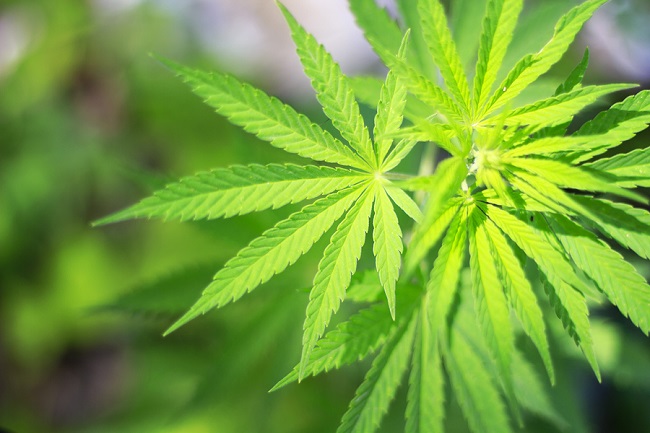- Make It Yourself Lavender Heart-Shaped Bath Bombs!
- 20 Things You Never Knew About “Down There”
- 12 Best Foods For Those Suffering From Arthritis Pain
- 12 Personal Hygiene Mistakes Almost Everyone Makes (Mom Never Told You About #4!)
- 15 Medicinal Plants And Herbs From The Cherokee People
- 12 Mind-Blowing Benefits Of Drinking Coconut Water During Pregnancy
- 12 Outstanding Winter Foods That Won’t Fatten You Up Like A Christmas Turkey
Low Doses of THC Stops Brain Decline Without the High
Although many of us think of cannabis as a recreational drug, more and more studies are showing that this plant has many therapeutic and medicinal properties.
A recent study published in the Journal of Neuroscience Research stated that low doses of cannabinoids, especially low doses of THC, work like a protective layer against cognitive issues caused due to inflammation of the brain. This research was carried out at the Tel Aviv University in Israel.
Brazil researchers had published a study earlier that cannabidiol (CBD) could help to stop neuronal cell death in the area of neurodegradation. Prior research showed that even ultra-low doses of THC could protect the brain from cognitive deficits that cause brain inflammation.

Photo credit: bigstock
The main goal of the Israeli study was to find out of low-doses of THC would protect the brain from cognitive problems after the brain was inflamed in the lab. The Israeli researchers did an in vivo study in their lab with mice that they had given 10mg/kg of LPS (lipopolysaccharide), a substance known to cause inflammation of the brain.
YOU MIGHT ALSO LIKE: Top 10 Foods that Actually Boost Your Brain Power!
At the same time, these mice were injected with 0.002 mg/kg of THC either 1 or 7 days after the LPS injection, or within 48 hours of the LPS injection. This was dong to determine whether the timing of the THC would protect their brains from the deliberate inflammation injection. Three weeks after all injections were given, the mice were tested again. The study clearly showed that giving the subjects THC either before or after the LPS injection prevented inflammation induced cognitive dysfunction. THC worked as both a preventative measure as well as a remedy against inflammation of the brain.
In fact, further investigation found that, in order for THC to be effective, CB1 receptors (endocannabinoids signaling system) that are primarily found in the brain, needed to be activated.
SEE ALSO: Is Your Marijuana Laced with Pesticides?
This study would suggest, then, that even very tiny doses of THC can both prevent and heal cognitive dysfunction from inflammation of the brain as well as other neurodegenerative diseases such as Parkinson’s disease and Alzheimer’s.
This is good news for patients who are older and aren’t interested in getting high, but want or need protection from brain inflammation. These patients can receive all the brain protecting benefits of THC without getting high.
Previous studies tried injecting high doses of THC within 30 minutes, or less, after a brain injury. Current research, published in Behavioural Brain Research as well as Experimental Brain Research, shows that very low doses of THC, as little as 1,000 time less than what would be consumed in a typical marijuana cigarette, administered 1 to 3 days after an incident, can actually jump start a process that preserves cognitive function as well as protect existing undamaged brain cells. Read also about treating cancer with cannabis oil.
There is a well-known case study of a woman named Debbie Wilson. This woman was hit by a truck in a parking lot. On impact, she was thrown to the ground head first, and then the driver accidentally backed over her.
This terrible accident was the start of a 22 year ordeal for this woman where she had to struggle against traumatic brain injuries that included symptoms of migraines, time distortion, forgetfulness, depression, anxiety, and balance problems.
Several years after the accident, Debbie became afflicted with seizures, post-traumatic stress disorder, and epilepsy, diabetes, anxiety attacks, and Alzheimer’s. She began taking a cocktail of pharmaceuticals that only seemed to cause her numerous side effects and did little or nothing the help her issues.
Desperate for help, in 2010, Debbie began to smoke cannabis as a last ditch effort to find some peace and relief from her symptoms. Within mere weeks after she began smoking, Debbie began to notice a significant improvement in her symptoms.
Later, when she began to take non-psychoactive cannabis medicine that contained 22 percent CBD and 1 percent THC oil, along with a high THC strain for her epilepsy problem, she experienced a truly miraculous healing. All from the benefits of cannabis and THC oil.
Debbie claims that she is only now able to recall memories that have been buried in her brain for more than 20 years.
Watch her video and listen to her remarkable story. Debbie is just another story about the powerful healing properties of THC oil and cannabis.
































